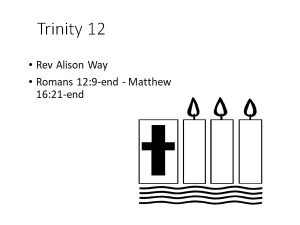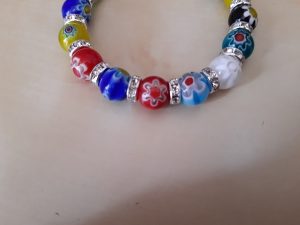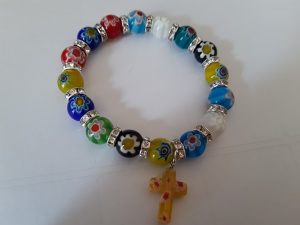Trinity 10
Romans 11: 1-2a, 29-32 and Matthew 15: 21-28
I think it is fair to say that we are living in fairly difficult times. My newspaper is carrying stories about the numbers of migrants crossing the Channel and the possibility of calling out the Royal Navy to prevent them from landing. As I write this the MOD is considering this. One of our largest political parties is deeply divided over accusations of anti-Semitism within its ranks. The Black Lives Matter movement has launched a toolkit called BLM in the Stix designed to help people in rural areas – people like you and me – to understand and to fight racism in their areas. As one of the organisers puts it: ‘… (it) is about getting people who are not racist to become anti-racist, especially for people who live in rural areas who might be thinking we don’t have that much racism around here’. The reason we are unable to sit near to our friends in church or to sing hymns is because the world is suffering a pandemic of a virus that makes no distinction about who to infect beyond that you need to be human. And to crown it all we learned just last week that Bishop Peter has been diagnosed with leukaemia and is receiving chemotherapy.
Both our readings today speak directly and very clearly into this situation. I had to read the passage from Romans several times in order to work out what Paul was saying, but actually he is being very clear. Reading between the lines a bit it seems that there may have been anti-Semitism in the church as early as Paul’s time, or possibly a developing idea that as His chosen people had not all been faithful, God had abandoned them in favour of those who followed His son. Paul is quite emphatic in dealing with both of those ideas. God’s calling is irrevocable. The history of the Jewish people may be a chequered one, but I am in no position to cast any blame. My walk with Him has been just as wobbly at times.
And then we come to the story of Jesus dealing with a foreign woman in a way that makes us just a bit uncomfortable. We need to look carefully at what was going on here. Jesus has been teaching the crowd who are following him everywhere he went making it impossible for him to rest, he has been healing sick people, and he has been challenged by the Pharisees who came to debate the detail of keeping the law relating to hand washing. Somehow that seems quite appropriate for our times! He is tired, and the only way he can escape to recharge his batteries and get some time with the disciples is to go across the border to another country – modern day Lebanon and about 30 or more miles away. Jesus is now in gentile territory, and it seems that at last the crowd have gone home for a while. Peace at last!
They are then approached by someone who is both of the two things that are dreadful to a devout Jewish man. She is a woman and a gentile – either one of those things is enough to make a Jew ritually unclean – and she is both! Not only that, she is very determined, to the extent that when Jesus appears to ignore her, she continues to shout at the disciples. They recognise that she wants to talk with the organ grinder and not the monkeys, and ask Jesus to do something, so he challenges her faith. In calling Jesus ‘Son of David’ and Lord, and in kneeling before him she has already demonstrated that she knows who he is, and that he has come to save his people. She still believes though that he will not be exclusive. Jesus reply to her is not quite as nasty as it would appear at first reading. He is not talking about throwing food to the stray dogs that may be around, but rather about cooking a meal for your children and then feeding it to your family pet. She takes up the challenge, agrees with him but points out that family pets get the leftovers when the family has eaten. Any of us who have had children and dogs know how quickly the dog will learn that it is good to be around when the child is in the high chair, as food often gets pushed off the tray, and they will also recognise the sound of plates being stacked after a meal – that is the time that leftovers often find their way into the dog’s bowl.
This conversation is probably not as unfriendly as it sounds – it is a shame that we only have written accounts of the sayings of Jesus filtered through translation, and cannot hear his tone of voice. The more I look into this passage, the more I get the feeling that this woman made Jesus laugh, and he finishes the conversation by saying – go home – your daughter is well. His healing is total – he doesn’t ever make anyone just a bit better, and this brings us full circle to the words from Romans – the gifts of God are irrevocable.
The Canaanite woman seems to me to demonstrate the three virtues that Paul mentions at the end of the great chapter about love in 1 Corinthians 13. She has faith – if she didn’t think that Jesus could heal her daughter there would have been no point in asking. She has hope – that he will do something for her even though she knows she has little right to ask. And finally, she has love – love for her daughter that gives her the determination not to accept no for an answer but to continue to challenge. The gospels tell us of two occasions when Jesus performed healing miracles for gentiles – once for the centurion whose servant was ill, and this one and in both cases he remarks how these people have more faith than any he has found in his own people. Both times he heals at a distance, and both times he heals completely.
My commentary says this, ‘This miracle was another important lesson for the disciples. The Jews had priority in God’s kingdom program. However, God would deliver Gentiles who also came to Him in humble dependence relying only on His power and mercy for salvation. In this miracle of mercy there is a clear foreview of Gentile blessing …’. This is the promise for us to hold on to when we almost despair about the state of our world. The gifts of God are irrevocable.
Thanks be to God
A Prayer for Bishop Peter
O Lord, you are our strength and our shield.
Your love sustains us through all the challenges we face.
We place into your hands all who are facing challenges,
In this time of such uncertainty.
We hold before you all who are dear to us.
Particularly we pray for our Bishop, Peter,
His family and friends and all who love him,
As they face these coming months.
May they know your strength and protection,
Your healing and your love,
In the name of Jesus,
And in the power of the Holy Spirit,
Amen
 In the name of God, loving Father, risen Son and ever present Holy Spirit. Amen
In the name of God, loving Father, risen Son and ever present Holy Spirit. Amen The very first phrase ‘let love be genuine’ could be the heading for this whole reading. The first half about how we should be as the body of Christ his church, and the second how we should be with our wider society – showing we are Christian by our love.
The very first phrase ‘let love be genuine’ could be the heading for this whole reading. The first half about how we should be as the body of Christ his church, and the second how we should be with our wider society – showing we are Christian by our love.

